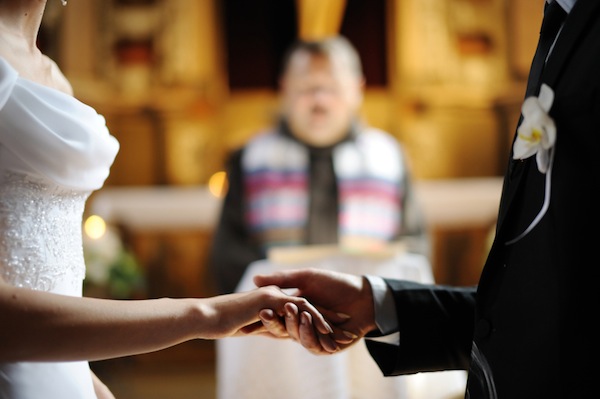
“Let them eat cake,” Marie Antoinette may have mockingly said upon hearing that the French peasants had no bread to eat. Recently divorced couples seem to have taken her cue. During what was once considered a dark hour, people are now throwing divorce parties, complete with what they are now calling “freedom cakes.”
The AP reports:
Divorce, it seems, has turned into a party — special cakes and all.
Event planners, bakers, lawyers and academics note the rise of “divorce parties” over the last several years, many with cakes featuring weapon-wielding brides or gloomy black frosting on inverted tiers.
“I’ve taken to naming them freedom fests, as you aren’t celebrating the end of the marriage but the freedom you have chosen in your life,” said Richard O’Malley, a New York-area event planner who organized one divorce blowout that cost a woman about $25,000.
Michal Ann Strahilevitz, a marketing professor at Golden Gate University in San Francisco, has been to a few such parties and sees them as part of a larger trend in celebrations.
“People are also celebrating ‘coming out’ to their parents or co-workers, and the birthdays of their pets. Cancer survivors are celebrating relevant milestones of being cancer-free. There has been an enormous increase in the variety of things that Americans celebrate,” she said.
So why not a divorce, asks Steve Wolf, who lives outside Austin, Texas. He marked his amicable split with a party co-hosted by his ex that included a gluten-free cake she baked herself in lemon, a favorite flavor for both of them.
Wolf, the father of three boys, considers the end of his marriage a “conscious uncoupling.” Yes, like Gwyneth Paltrow. The party, he said, offered closure, especially important because kids were involved.
“We wanted to do something that expressed the fact that we were doing the divorce not so much as an end of our relationship but as us moving into things like co-parenting and co-business management,” said Wolf, whose former wife works for him in his special effects and stunt business serving the film industry.
“We cut the cake together like we did the wedding cake 10 years before. When life gives you lemons, make lemon cake,” he joked, noting the sentiment she wrote in the icing.
Read more here. (And check out this disturbing “divorce cake,” as well as this comical one.)
However, the last line of the article haunted me. It quotes a New York-based event planner, Richard O’Malley, saying, “This is something you don’t have to regret, like the wedding . . . It’s something without any shame.”
A lot has been written about shame lately. Daring Greatly, by Brene Brown, a shame resilience researcher, recently made the Amazon list of 100 Books to Read Before You Die. In her excellent book, Brown encourages people to embrace their vulnerability and live life whole-heartedly (she does not recommend divorce parties). Accepting weakness and embracing reality is crucial to living well, but we must not confuse whole-heartedness with disillusion. O’Malley says people are not ashamed of their failed marriages, but of their weddings. They are ashamed over their hope for lifelong relationship. They feel foolish, but they are mourning the wrong event.
In Isaiah, we read,
Woe to those who call evil good
and good evil, who put darkness for light
and light for darkness, who put bitter for sweet
and sweet for bitter!
Many marriages fail. Sadly, it happens to the best couples. But marriage is still sacred, ordained by God to be set apart. It reflects our relationship with Him. A good marriage sanctifies its participants. Its bumps and bruises mold them to be more Christ-like. These solid relationships are the hub of our society. Children flourish in them. Marriage creates comfort, care, and provision in the midst of chaos.
If you are divorcing, grieve, embrace your new possibilities, and move forward.
But do not mistake the bitter for the sweet.
By ANNA QUINN
Anna Quinn is the mother of four and a writer in Tennessee









